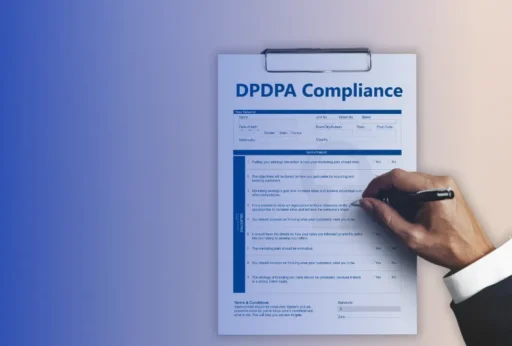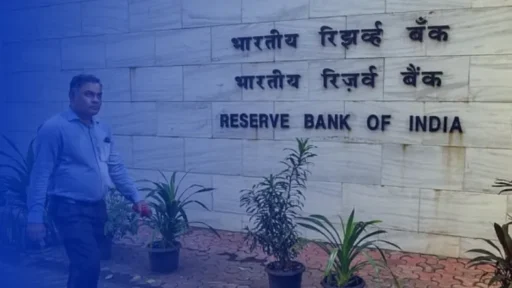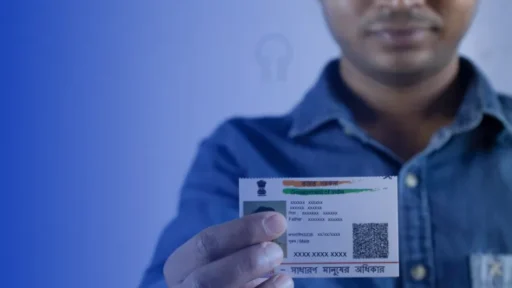In today’s digital world, our personal information is incredibly valuable. It shapes our online experiences, influences decisions, and drives countless interactions. But have you ever wondered who controls this valuable data and how they are using it?
The Digital Personal Data Protection Act (DPDPA) 2023 in India is here to change the game. It aims to empower individuals like you to take charge of your data and demand transparency from companies.
In a world where ads seem to know everything about you, loyalty programs share too much, and privacy feels uncertain, there’s a growing need for stronger data protection. That’s where the DPDPA comes in, setting a new standard for informed consent. Now, companies have to get your clear consent before they can access and use your data.
DPDPA Core Principles:
The DPDPA compliance relies on five core things that shape how data processing operates.
- Fairness and transparency: Businesses must openly communicate how they gather, use, and safeguard personal data. Individuals have the right to understand these practices and access their own data.
- Purpose limitation: Personal data can only be collected and processed for specific, clearly defined, and lawful purposes. Businesses cannot reuse data without obtaining fresh consent.
- Data minimization: Businesses should only collect the minimum amount of personal data necessary for the intended purpose. Collecting excessive data poses unnecessary privacy risks.
- Storage limitation: Personal data should not be retained for longer than required for the stated purpose. Businesses must establish clear data retention policies and securely dispose of unnecessary data.
- Accountability: Businesses are responsible for safeguarding the personal data they possess. This involves implementing suitable security measures, promptly addressing data breaches, and handling individual inquiries and complaints effectively.
Importance of Consent in DPDPA Compliance
Consent holds significant importance within the framework of the DPDPA. It grants individuals the authority to manage the usage of their personal data and establishes a legal foundation for businesses to handle such data. According to the Act, consent must adhere to the following criteria:
- Freely given: Individuals should not feel pressured or compelled to provide consent. It must be a voluntary decision.
- Specific: Consent must be granted for a particular purpose and clearly described. Individuals should understand exactly what they are consenting to.
- Informed: Individuals must possess a clear understanding of the implications of their consent before providing it. They should be fully informed about how their data will be used.
- Unambiguous: There should be no ambiguity regarding the scope of consent. It should be evident and straightforward, leaving no room for misunderstanding.
- Revocable: Individuals retain the right to withdraw their consent at any time. They should be able to revoke consent easily and without facing any undue obstacles.
Key Obligations for Companies:
Companies are now legally responsible for respecting your choices and protecting your data. Thus, this means they must apply robust security measures, respond to data breaches promptly, and address your complaints effectively. DPDPA compliance outlines several key obligations for businesses regarding consent management:
- Notice: Businesses must provide a clear and concise privacy notice that explains how they collect, use, and store personal data. This notice should be easily available and understandable to the individual.
- Mechanism for consent: Businesses must provide a clear and easy-to-use mechanism for individuals to grant, withhold, or withdraw their consent. This could involve opt-in checkboxes, clear withdrawal options, and accessible channels for communication.
- Record-keeping: Businesses must keep records of consent obtained from individuals. These records should be accurate, complete, and readily available for verification.
- Responding to consent withdrawals: Businesses must have a clear and efficient process for responding to requests to withdraw consent. Moreover, this should involve promptly ceasing the processing of personal data and informing the individual of the steps taken.
DPDPA Consumers Rights
This is not just an act it’s going to be a game changer in guiding how you securely handle your personal data. As a customer now you have full power against the data companies have been using without your consent. Let’s delve into the various powers DPDPA provides you:
- Transparency: Companies must be clear and upfront about what data they collect, why they need it, and how they plan to use it. No more hidden clauses or ambiguous terms. Moreover, you have the right to know exactly what information is being collected and processed about you.
- Data Access: You have the right to access your personal data held by companies. Additionally, this allows you to verify its accuracy, correct any errors, and understand its use.
- Data Portability: In specific situations, you can request a company to transfer your data to another service provider. This enables you to switch platforms without losing control of your information.
- Consent is King: With the DPDPA, you’re in control. Your permission to use your data has to be given freely, for a specific reason, with all the details, and very clear. You get to decide if you want to share your data and why.
- Withdrawal of Consent: Just like granting consent, withdrawing it is now a seamless process. You can revoke your consent at any time, taking back control of your data and limiting its use.
- Profiling Restrictions: The DPDPA restricts companies from creating detailed profiles about you based on your data without your explicit consent. Last but not least, this protects you from being targeted with intrusive advertising or unfair decisions based on automated algorithms.
What Happens in Case of Non-compliance
With DPDPA companies are now bound to obtain consent from customers before using their personal data for any purpose and if they do not comply with this act they have to pay heavy penalties and face legal consequences. Some of the important consequences are as below:
- Financial penalties: Overall, non-compliance with the DPDPA can attract significant financial penalties, ranging from ₹1 lakh to ₹5 crore for the first offense and ₹2 crore to ₹10 crore for subsequent offenses. These penalties are determined based on the nature and intensity of the violation, and the potential harm caused to individuals.
- Data protection officer penalties: Additionally, the designated Data Protection Officer (DPO) within the company can also be held personally liable for specific offenses, attracting penalties of up to ₹3 lakh.
- Regulatory action: The Data Protection Authority (DPA) has the power to conduct investigations, issue warnings, and impose penalties on companies found to be violating the DPDPA. In addition, this includes the ability to order companies to cease data processing activities, block access to specific data, or even appoint independent auditors to assess their compliance practices.
- Civil lawsuits: Individuals whose data has been dealt without their consent may also file civil lawsuits against the company, seeking compensation for damages gained.
How to comply with DPDPA
Complying with the Digital Personal Data Protection Act (DPDPA) is hard due to its complex requirements and the risk of penalties for non-compliance. Tasks like lawful data processing, obtaining consent and addressing data subject rights can be challenging, especially for businesses.
That’s where Concur comes in. Our solution makes DPDPA compliance easier by offering a range of tools and services. From managing consent to handling data access requests and ensuring secure data processing, Concur knows the process for businesses.
With Concur, you not only meet regulatory requirements but also build trust with your customers. This increases your brand’s reputation and boosts customer loyalty in the digital world.
Check out: Consent Management Process Under DPDPA
FAQs on DPDPA Compliance
Consent under the DPDPA is crucial because it gives individuals to control their personal data. It must be freely given, specific, informed, precise, and revocable.
Consumers have rights to transparency, data access, data portability, giving and withdrawing consent, profiling restrictions, and protections against pushy advertising.
Non-compliance can lead to financial penalties ranging from ₹1 lakh to ₹10 crore, regulatory actions, data protection officer penalties, and civil lawsuits from individuals.







Comments are closed.